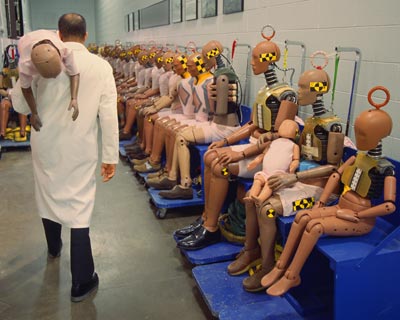Marc Andreessen is sure that the Information Age, like the Industrial Age before it, will lead to an explosion of wealth, and he’s probably right. But who will own that wealth? Will it be concentrated or diffuse? Can a highly automated society provide enough jobs or will we be playing with our smartphones in the margins? Will we have to settle for bread and Kardashians? At Jacobin, in an open letter to Andreessen, Alex Payne asserts that the average person isn’t as frightened by robots as those who own them. An excerpt:
“While I didn’t jibe with your take on recent macroeconomic history, I was heartened to see that you’re interested in empowering individuals through technology:
[T]he current technology revolution has put the means of production within everyone’s grasp. It comes in the form of the smartphone (and tablet and PC) with a mobile broadband connection to the Internet.
If we’re going to throw around Marxist terminology, though, can we at least keep Karl’s ideas intact?
Owning a smartphone is not the equivalent of owning the means of production. I paid for my iPhone in full, but Apple owns the software that runs on it, the patents on the hardware inside it, and the exclusive right to the marketplace of applications for it. If I want to participate in their marketplace, Apple can arbitrarily reject my application, extract whatever cut of my sales they see fit, and change the terms whenever they like.
Same story with their scant competitors. It seemed like a lot of people were going to get rich in the ‘app economy.’ Outside of Apple and Google, it turns out, not so much. For every WhatsApp there are thousands of failures.
The real money in tech is in platforms, network effects, scale. Sell pickaxes and jeans to the miners, right? Only today it’s Amazon selling the pickaxes. The startup with its servers on EC2 is about as likely to find gold as a ’49er panhandler. Before the startup goes out of business, Amazon gets paid.”

